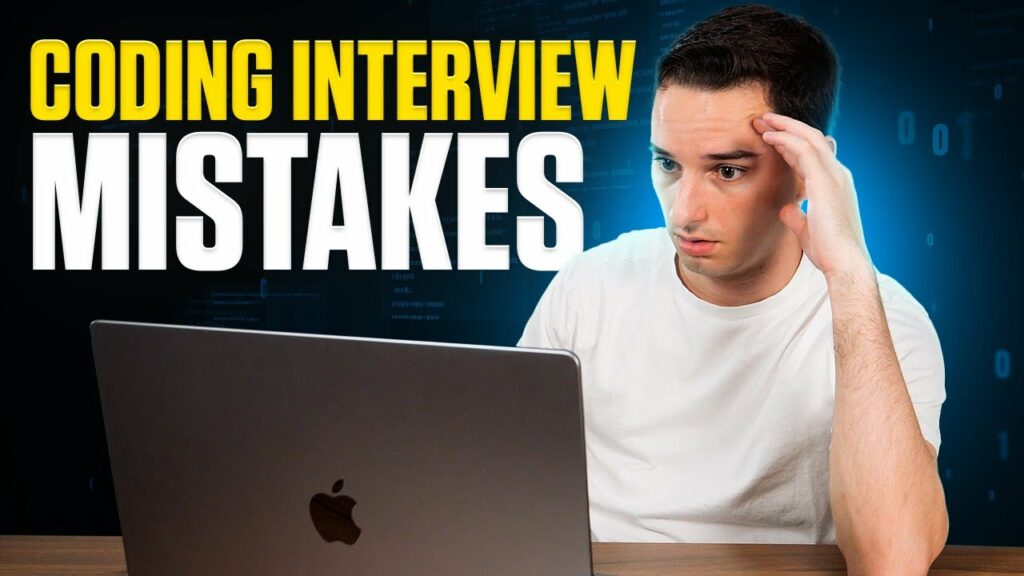Why Experienced Programmers Fail Coding Interviews? Even experienced programmers can struggle with coding interviews. This paradox often surprises many since years of experience don’t guarantee success in interviews. Let’s explore the key reasons why seasoned developers may stumble during these crucial assessments.
Why Experienced Programmers Fail Coding Interviews?
1. Misalignment Between Real-World Experience and Interview Focus
Practical vs. Algorithmic Knowledge
Many experienced programmers focus on building scalable systems, debugging, and optimizing code. However, coding interviews often emphasize algorithms, data structures, and problem-solving puzzles that may not be relevant in daily work.
| Real-World Tasks | Coding Interview Focus |
|---|---|
| Building scalable systems | Solving algorithmic puzzles |
| Debugging legacy code | Implementing data structures from scratch |
| Collaborating on team projects | Solo problem-solving under time pressure |

Outdated Knowledge on Algorithms
Experienced developers may not frequently revisit algorithmic concepts like dynamic programming, graph traversal, or complex recursion, causing them to struggle when these topics appear in interviews.
2. Time Management and Pressure Challenges
Lack of Practice in Timed Environments
Many experienced programmers work on projects with long-term timelines. Coding interviews, however, require solving problems quickly under strict time limits. This can create pressure that even skilled developers find difficult to handle.
High-Stress Environment
Coding interviews are often high-stakes, leading to anxiety. Experienced programmers accustomed to a relaxed work setting may find this environment overwhelming, which can result in mistakes.
| Work Environment | Coding Interview Environment |
|---|---|
| Collaborative and iterative | Time-constrained and individual |
| Focused on maintainability | Focused on optimal, quick solutions |
Ask yourself, Why Experienced Programmers Fail Coding Interviews?
3. Overlooking Interview Preparation
Overconfidence in Experience
Some experienced programmers may underestimate the need for interview-specific preparation. Their confidence in their industry skills may lead them to neglect practicing coding problems, which often requires a different skill set.
Insufficient Mock Interviews
Mock interviews help simulate real interview scenarios. Experienced programmers who skip this step may miss out on refining their responses, leading to poor performance during the actual interview.
And Why Experienced Programmers Fail Coding Interviews?
4. Poor Communication Skills
Lack of Explanation Practice
Coding interviews not only test coding ability but also the ability to explain thought processes clearly. Experienced programmers may struggle to verbalize their solutions since they often work independently without needing to articulate every step.
Focus on Code Over Thought Process
Interviewers often prioritize how candidates approach problems over the final answer. Experienced programmers may overly focus on writing correct code rather than walking through their thought process, which can hurt their evaluation.
5. Failure to Adapt to Interview Style
Ignoring Behavioral Questions
Behavioral questions are a critical part of many coding interviews. Experienced programmers may concentrate solely on technical questions and overlook the importance of storytelling and demonstrating cultural fit.
Struggles with New Interview Formats
Interviews now often involve whiteboarding, live coding, or pair programming. Seasoned developers may find it challenging to adjust to these formats if they’ve not encountered them in their career.
How Experienced Programmers Can Succeed
- Practice Algorithms and Data Structures: Regularly revisit core concepts on platforms like LeetCode or HackerRank.
- Simulate Real Interviews: Use mock interview platforms or practice with peers to get comfortable under timed conditions.
- Improve Communication: Practice explaining thought processes aloud, ensuring clarity and confidence.
- Study Behavioral Questions: Prepare answers for common behavioral questions and highlight relevant experience.
Understanding these pitfalls and preparing accordingly can help even the most experienced programmers ace their coding interviews.
